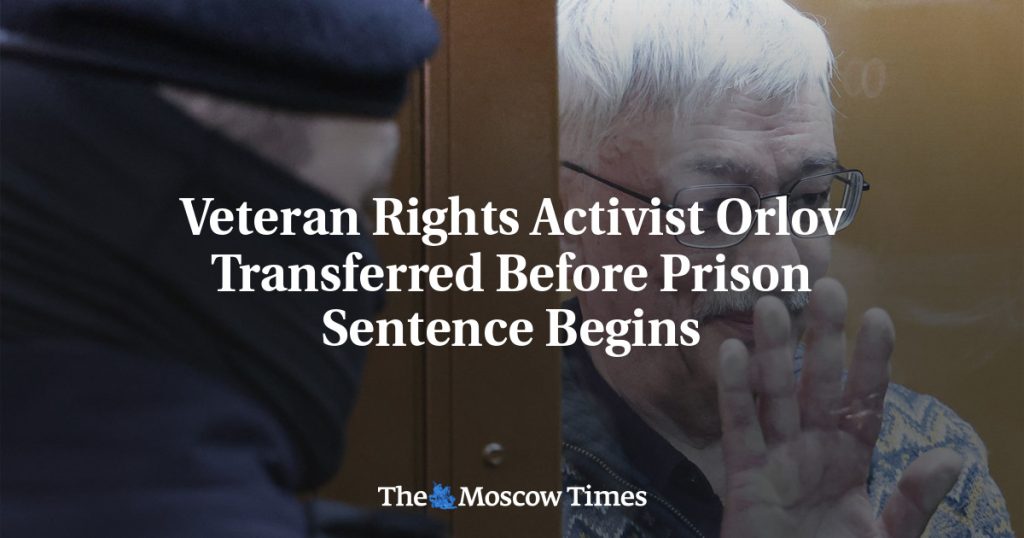The Russian human rights group Memorial co-founder Oleg Orlov was transferred to a detention center in southwestern Russia before his prison sentence for discrediting the Russian army was set to enter into force. Orlov was convicted after criticizing Russia’s invasion of Ukraine and was sentenced to two-and-a-half years in a medium-security prison. Despite appealing the verdict, under Russian law, the prison sentence does not take effect until a higher court rules on the appeal. Orlov was moved to Samara without notifying his lawyer or wife, causing concern for his well-being.
Russian prison authorities sometimes use the justification of easing overcrowded detention centers to transfer prisoners prematurely. Orlov was granted visitation rights for his wife, Tatiana, by the judge who sentenced him. Tatiana requested that the authorities not transfer her husband until his sentence was in force due to his poor health. Memorial described the transfer process as “torturous” due to cramped spaces and lack of information provided to the detainees. Orlov’s designation as a “foreign agent” by Russia’s Justice Ministry just days before his sentencing added to the turmoil surrounding his case.
Orlov’s lawyer, Katerina Tertukhina, stated that the appeal process was ongoing, and the verdict would only take legal effect after the appellate court issued a ruling. The lawyer at Memorial expressed concern over the transfer as a form of humiliation or revenge against Orlov. Memorial highlighted the uncertainty and exhaustion Orlov was facing during the transfer, indicating that he was unsure of his final destination. The actions taken against Orlov, including his classification as a “foreign agent,” contributed to the sense of injustice surrounding his case.
The circumstances surrounding Orlov’s transfer reflect broader issues of human rights violations within the Russian penal system and legal system. The lack of transparency, disregard for due process, and harsh treatment of political prisoners like Orlov raise concerns about the state of human rights in Russia. Orlov’s case also underscores the challenges faced by activists and organizations working to defend human rights in the country. Memorial’s efforts to advocate for Orlov and address the injustices he has faced illustrate the ongoing struggles for justice and accountability in Russia.
The transfer of Orlov to a detention center in Samara without proper notification or consideration for his health points to systemic issues in Russia’s treatment of prisoners and individuals critical of the government. The use of punitive measures such as premature transfers and labeling of individuals as “foreign agents” appears to be a form of retaliation and intimidation by the authorities. These tactics aim to silence dissent and discourage advocacy for human rights and political freedoms in the country. Orlov’s case serves as a stark reminder of the challenges faced by those who speak out against government actions and the consequences they may endure as a result.
As the appeal process continues for Orlov, the international community’s attention to his case and others like it is crucial in holding the Russian government accountable for its treatment of dissidents and activists. By highlighting Orlov’s situation and advocating for his rights, organizations such as Memorial contribute to the global conversation on human rights abuses and the need for justice and fairness in legal proceedings. Orlov’s resilience in the face of adversity and Memorial’s dedication to defending human rights in Russia exemplify the importance of standing up against oppression and fighting for justice in the pursuit of a more equitable society.


